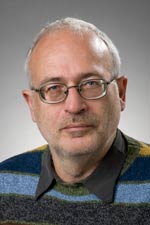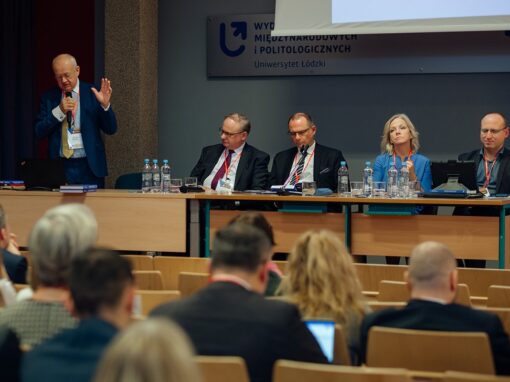Warsztaty „How to build an IR theory”

W dniach 18-19 września 2012r. PTSM Oddział Warszawa oraz ISM UW organizują prestiżowy warsztat dla młodych doktorów i doktorantów zatytułowany „How to build an IR theory”. Warsztat poprowadzi profesor Aarhus University w Danii Knud Erik Jorgensen, wybitny znawca teorii stosunków międzynarodowych i autor znanych na świecie publikacji (w tym pracy „International Relations Theory”).
Osoby zakwalifikowane do udziału w warsztacie:
- Sebastian Żukowski University of Adam Mickiewicz in Poznan, Faculty of Political Science and Journalism, Department of IR Ph.D. Candidate Building Quantum Theory of International Relations
- Aldona Wrzosek Faculty of Journalism and Political Science, University of Warsaw Ph.D. Candidate hegemonic stability theory testing
- Marcin Grabowski Insitute of International Relations and Politics, Jagiellonian University Ph.D. (2010) Northeast Asian Community – Is It Feasible?
- Ewa Trojnar Institute of the Middle and Far Eastern Studies, Jagiellonian University Ph.D. (2008) building a more suitable and robust theoretical framework to be applied to the increasingly complex relations in East Asia.
- Tomasz Pugacewicz Jagiellonian University, Faculty of International and Political Studies, Ph.D. Candidate building a theory of U.S. foreign policy.
- Wojciech Kozłowski Department of Medieval Studies, Central European University Ph.D. Candidate political relations between Poland and Hungary in the first decades of the fourteenth century; to connect modern approaches to politics with political practices of the Middle Ages and thus formulate an innovative way of depicting these matters
- Patrycja Grzebyk Institute of International Relations, University of Warsaw Ph.D. (2010) how to build consistent convincing theory which would explain the interlinks between main values of international relations like peace, justice and truth
- Monika Sus Willy Brandt Center for German and European Studies, University of Wroclaw Ph.D.(2009) a new idea for a theoretical framework for studying the changes within the European Union’s foreign policy and to answer the question how the EU’s new foreign policy
architecture influences its performance on the international level. - Mateusz Filary Jagiellonian University, Instytut Amerykanistyki I Studiów Polonijnych, Ph.D. Candidate social and professional benefits, the second,the quality of one’s own research project – a theory in statu nascendi.
- Rafał Ulatowski Institute of International Relations, University of Warsaw Ph.D. (2011) Geoeconomy of energy resources
- Anna Wojciuk Institute of International Relations, University of Warsaw Ph.D. (2010) Education as a new source of power in IR
- Karina Jędrzejowska „The emerging markets in global economy, and the role of state in the process of development”
- Jakub Zajączkowski „Indian Ocean region in International Relations: methodological perspectives”
- Aleksandra Jarczewska, Univesity of Warsaw, „The strategic shift in the United States Foreign Policy to Asia Pacific Region”
Warsztaty odbędą się w ISM UW, ul. Żurawia 4
18 września godz. 9 – 16 (z przerwą na lunch i ew, krótszymi przerwami w miarę potrzeb)
19 września godz. 9 – 15 (z przerwą na lunch i ew, krótszymi przerwami w miarę potrzeb).
Wstępna lista lektur dla uczestników (do zapoznania się przez warsztatem):
- – Knud Erik Jorgensen, „International Relations Theory”, Palgrave.
- – Kenneth N. Waltz, ‚Realist thought and neorealist theory’, Journal of International Affairs, 44.1,Spring 1990.
- – John J. Mearsheimer, „A Self-Enclosed World?” in Ian Shapiro, Rogers M. Smith, and Tarek E. Masoud, eds., Problems and Methods in the Study of Politics (New York: Cambridge University Press, pp. 388-394.
- – James N. Rosenau, Thinking Theory Thoroughly

